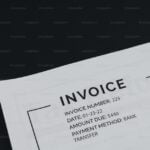
7 Things to Include in a Freelance Editing Contract
Whether you’re just starting out as a freelance editor or have years of experience, it’s essential to have a freelance editing contract in place before starting any new project. A clear and concise contract sets expectations, outlines the scope of work, and protects both parties in the event of any disputes down the road. In this post, we’ll discuss:
- What a freelance editing contract is
- What to include in a contract
- Why it’s important to have a contract
Keep reading to discover how to create a solid contract that works for you and your clients!
What Is a Freelance Contract?
A freelance contract is a legally binding agreement between a freelancer and a client, outlining the terms and conditions of their working relationship. It summarizes the services the freelancer will provide, the scope of the work, the expected time frame of the project, and the means and timing of the payment.
A contract protects both parties and ensures that everyone is on the same page before work begins. As a freelancer, you should carefully review and negotiate the terms of any contract before signing to ensure that you’ll be fairly compensated for your work and that you’re protecting your rights.
The Benefits of Freelance Contracts
A freelance editing contract has several benefits.
First, the contract protects your time and effort. Scope creep can be an issue for freelancers. Clearly setting out the scope of the project in writing can help prevent a situation where your client asks for additional work that wasn’t included in the initial brief, for example, asking for extra rounds of edits or adding material that wasn’t included in the original word count.
Second, by setting out your pay expectations from the beginning, you reduce the chance of unpaid work or late payments. When the project ends, everyone involved is clear on how much and when you need to be paid.
Finally, having a freelance contract also helps you look professional – it shows that you are well prepared and understand the exact requirements for a successful project.
What to Include in a Freelance Editing Contract
Unfortunately, freelance contracts don’t just write themselves! Here’s a definitive guide for creating a contract that can be customized so you don’t need to start from scratch every time.
Project Details
1. Statement of work
This section details:
- the nature of the project
- the services you’ve agreed to provide (otherwise known as deliverables)
- your personal information (such as your name / your company name, the client’s name, and contact details for both).
2. Timeline and milestones
This section should include the start and end dates of the project, as well as any deadlines between those two dates. If you and your client have agreed that you will be paid over the course of the project (as you cover each deliverable), rather than just at the end of the project, this provision should be made as clear as possible.
3. Additional services
If you’re able to provide extra services (e.g., formatting, editing, writing, fact-checking), outline these and their price on top of the original price. Doing this can prevent clients from asking for more work for the same price after signing the contract.
Payment Details
Payment is often subjective depending on budget, turnaround, and hours. Many things need consideration, such as the following:
- Will you charge per hour, per word, or per page?
- Will you be paid as soon as you complete the project or on a particular date (for example, the last day of the month), or will you receive milestone payments?
- Will you ask for an up-front deposit?
- If you receive a late payment, will you charge interest or ask for a fixed late fee?
- Who will pay for any additional project expenses (e.g., a special program or special software)?
- When will you send the invoice, and how? This information is essential for bookkeeping and tax purposes.
Once you’ve answered these questions, make sure you clearly set out your terms in your contract.
Nondisclosures and Indemnity Agreements
Having an nondisclosure agreement (NDA) and an indemnity agreement in a freelance editing contract protects the editor and the client from potential legal disputes. NDAs ensure that any confidential information shared during the project remains private. This is particularly important if the editor will have access to sensitive information, such as unpublished manuscripts or trade secrets. Indemnity agreements protect both parties from potential lawsuits or damages.
If you’re a freelance editor, it’s always wise to include these legal agreements in your contracts to ensure a smooth and stress-free working relationship with your clients.
Termination Clauses
Suppose you find yourself dropped by a client, don’t particularly get along well with them, or discover that your respective visions of the project are different from what you anticipated. In these cases, termination clauses can be an easy get-out-of-jail-free strategy to end things on a good note without worrying about not receiving payment.
Noncompete Clauses
As freelancers, our livelihoods depend on having the freedom to work with a range of clients. Sometimes, clients may want to include a noncompete clause, which could stop you from working with a competitor for a certain period of time within a certain geographical area. If you aren’t comfortable with this, be sure to make your feelings clear!
Signatures
Both parties must sign the contract to ensure the legality and acknowledgement of the stated terms in the contract.
Becoming An Editor
If the freedom of freelance work sounds good to you, why not check out our Becoming a Proofreader and Becoming an Editor courses?
Pass both courses with distinction (80% or above), and you’ll be eligible for guaranteed work with our partner company, Proofed. They’ll take care of administrative tasks, such as contracts and invoicing, so you can enjoy the benefits of freelancing without experiencing the stress!
Sign up for our free trial today and save 15% when you buy the courses as a bundle!





Your email address will not be published.